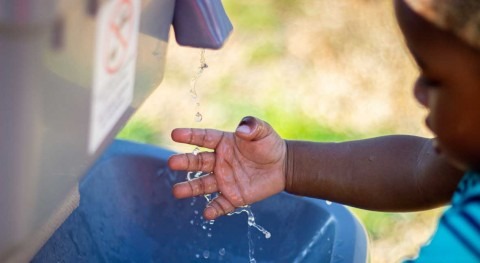Water is key to the global effort to achieve sustainability: the implementation of Agenda 2030, with one of its Sustainable development Goals, (SDG6) devoted to water. Water issues are also represented in other SDGs and their targets. Every year, the World Economic Forum ranks water crises and other water-related risks such as extreme weather events among the top 10 global risks in terms of impact and probability. Water research, and overall innovation in water science and technology are expected to underpin and accelerate progress towards achieving water-related aspirations in the coming years.
Many of the current water challenges are not new, but despite significant research effort, they remain unresolved. There is a need for increased ‘demand-driven’ research, as the usefulness of water research to water policy and practice is often vague. A new report by the Institute for Water, Environment and Health of the United Nations University raises some questions to stimulate discussion in the global water research community on how the sector can better serve sustainable development.
The report examines the various dimensions of global water-related research over the 2012-2017 period, using measurable indicators and tools based on open repositories of bibliographic data. It covers trends in water-related publications and citations, the relative importance of water-related research in the overall body of scientific research, flows of water-related knowledge between countries and the dynamics of water research publishing opportunities.
The findings show that less than 50% of all countries are publishing water-related research, with China and USA being the two top publishers. China’s publishing rate has been growing steadily over the study period. More than 70% of water-related publications originating in USA are being cited globally, while China’s water research output appears to be primarily internally cited at present. Analysis of the global water knowledge flows suggests that research is hardly addressing a range of regional water challenges. Countries with protracted water problems – for example in infrastructure, environment, agriculture, energy solutions – do not seem to be at the forefront of water research production or knowledge transfer. Instead, global water research is reliant on Western, particularly US-produced, scientific outputs.
A disconnect is also observed between the percentage increase in the publication and the number of citations, suggesting low quality or a narrow focus of many publications. Among other factors, this may reflect the pressure on researchers to contribute a certain number of publications per year, or of the progressively increasing role of grey literature in scientific discourse that ‘diverts’ some citation flow.
Worth noting is that the proportion of water research in the overall research output of a country is small – under 10% – including for some of the top-publishing countries.
The author concludes that if water research is to have a greater positive development impact on the countries and regions that face growing water-related problems, it is time to start looking beyond the research ‘box’, to develop measures or protocols that support practical and positive development impacts from of water research – rather than academic impact measured by citations. Water research results can achieve increased impact if they succeed in presenting concepts and solutions in a simple and useful way to stakeholders beyond research circles.








